
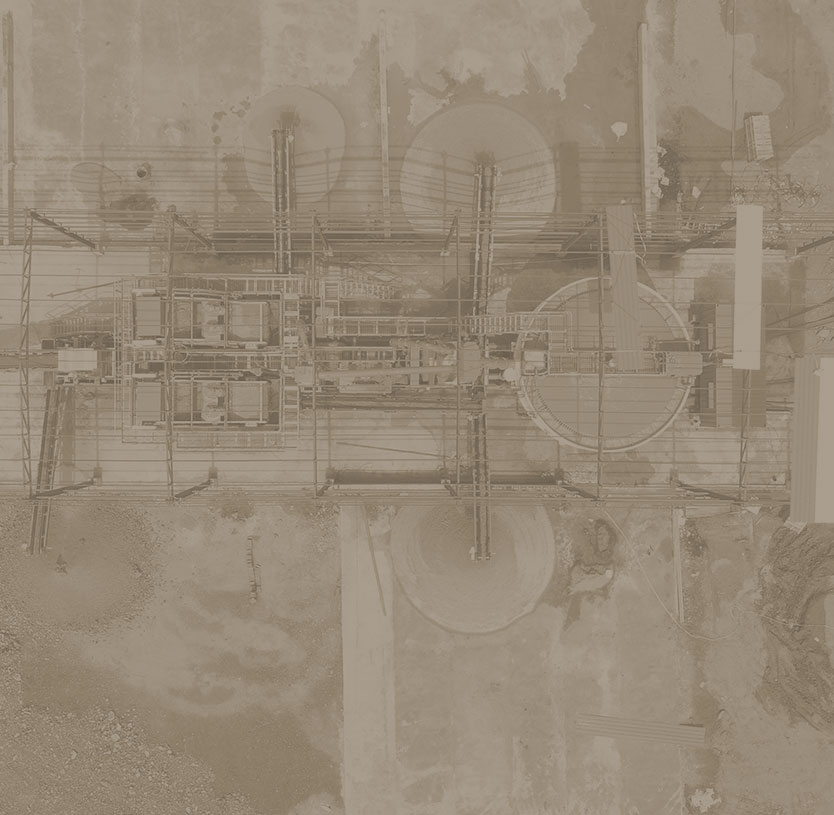
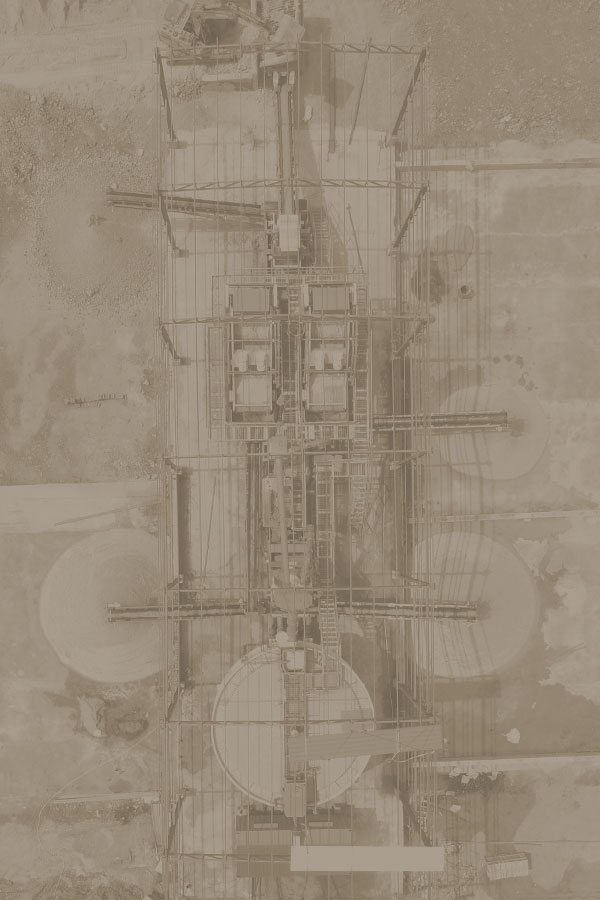
The Micrograder BT100 Silica Sand Processing Plant is a cutting-edge facility designed to revolutionize the foundry sand industry. This plant integrates state-of-the-art processing facility coupled with Zero Liquid Discharge (ZLD) technology boasting a production capacity of 100 TPH, producing high-quality foundry-grade sand with AFS 50-55, ideal for precision automobile casting applications. The project emphasizes high yield, sustainable operations, efficient water recycling, and minimal environmental impact. The installation process involved minimal civil works, rapid deployment of modular components, comprehensive testing, calibration, and thorough training for the operational team.
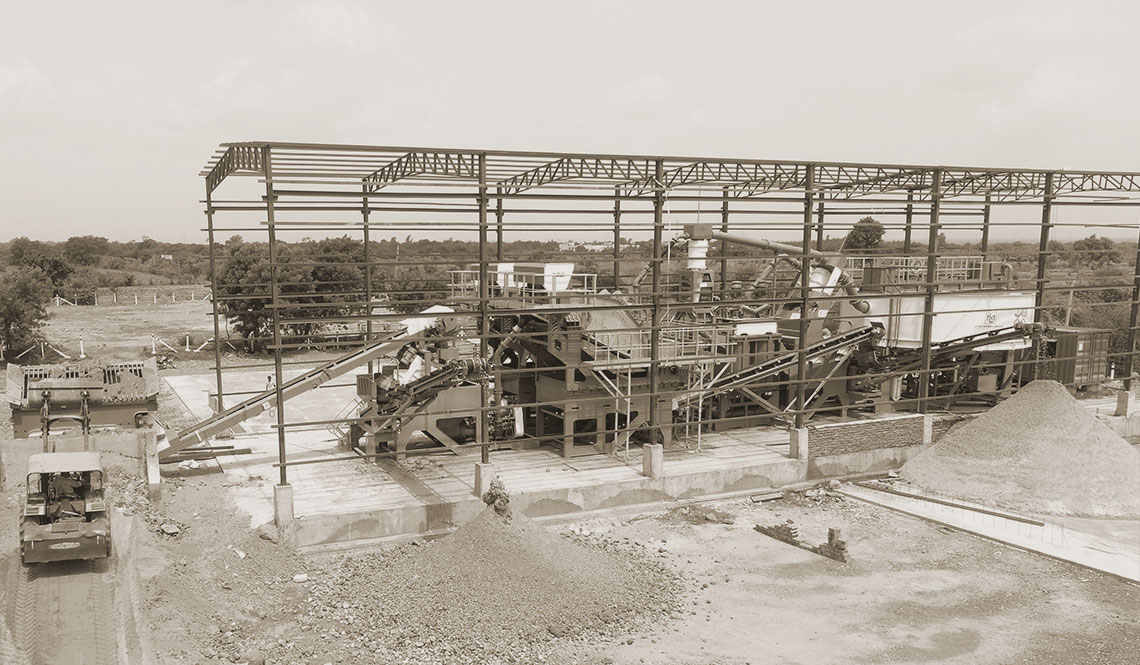
The state of the art Micrograder BT100, a 100TPH plant commissioned in Bharuch, Gujarat built on a modular platform is designed to meet the equirements of automobile casting application by producing the high quality foundry grade sand, meeting required specifications thus marking significant advancement in the foundry sand Industry. This case study explores the design, installation, and operational benefits of the Micrograder BT100, highlighting its contributions to sustainable foundry sand production.
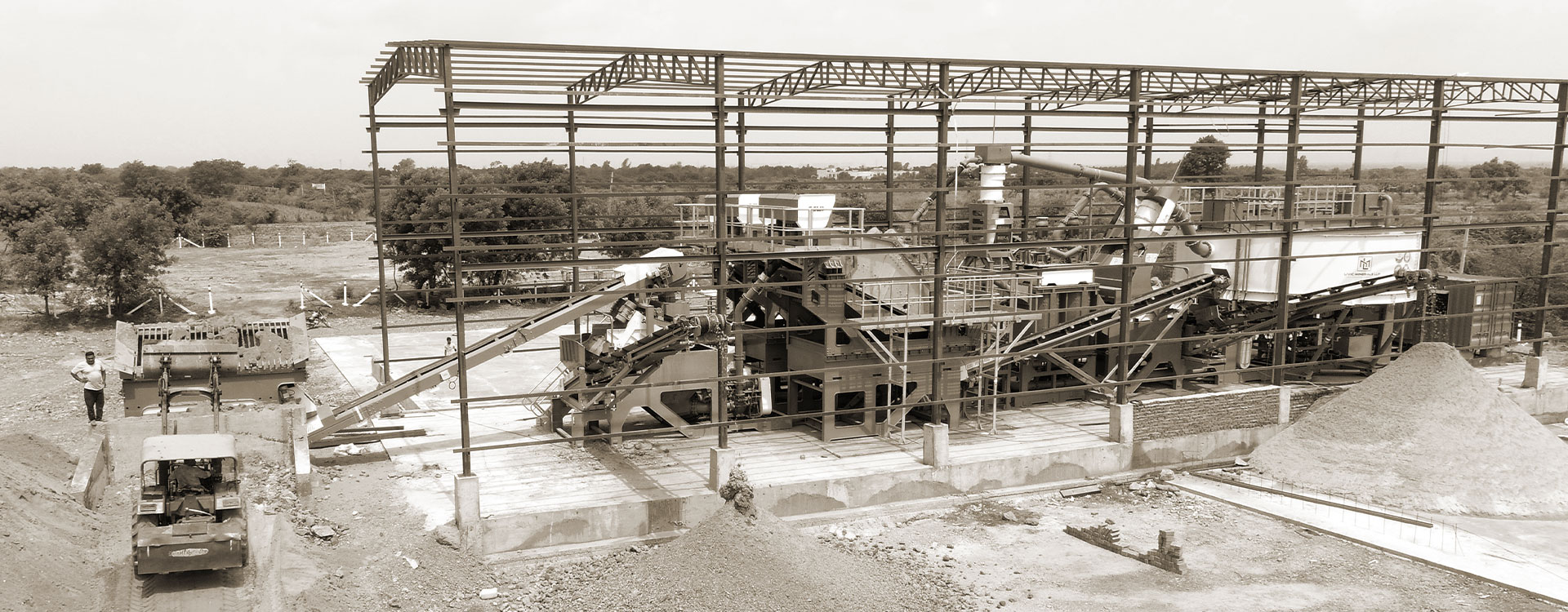
Automotive casting is a manufacturing process used to create automotive components by pouring molten metal into a mould, where it solidifies into a specific shape. The customer was missing out on a lucrative opportunity by not being able to supply the required grade for this application. The sand must be clean, uniformly sized, and of high quality to ensure the integrity of the castings. In the foundry industry, green sand casting is the most common method.
Green sand comprises high-quality silica sand, bentonite clay, water, and coal, with each component playing a crucial role in the casting process. Another major challenge for the customer was shortage of water therefore they were looking for an option with high percentages of water recycling possibilities in the system which our company was able to meet with our ZLD technology.
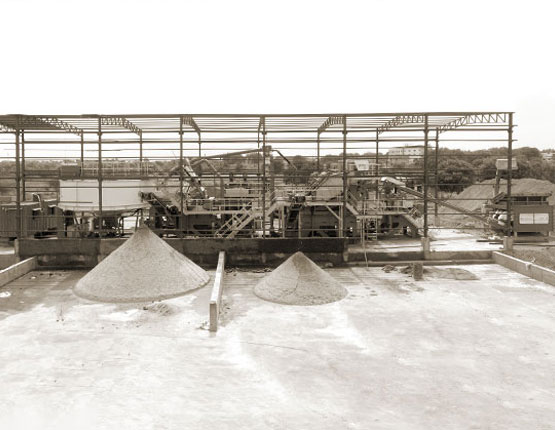
Capacity: 100 TPH, ensuring high throughput. Plant operating hours can be managed as per requirement for up to 20 hours per day.
Utilities Requirement: Power 300kW, Water 24m3/hour
Main Product: Production of Foundry-grade Sand with AFS 50-55, suitable for precision automobile casting. AFS grade can be adjusted using interchangeable parts.
By Product: Coarse and Fine graded Construction Sand.
Economic Benefit: With the cost of acquisition for the Raw material at Rs 250 per ton, after processing the primary Product is fetching a price of around Rs.1200 per ton and By products at Rs. 600 per ton, on ex-works basis.
Sustainability: By recycling 95% of process water, the plant significantly reduces its freshwater footprint. ZLD technology ensures no liquid waste is discharged from the plant, protecting local water bodies and ecosystems.
Footprint: On account of high cost of land and site development, the modular design of CFlo plant minimized the footprint, thus reducing the need for extensive civil works, resulting in substantial savings for the customer. This innovation also allowed the whole plant to be housed inside a building.
Rapid Deployment: Modular design of the equipment allowed quicker installation compared to traditional static plants. Faster operational start-up was achieved in less than 2-3 weeks of arrival of the equipment at site resulting in reduction of pre-operative costs.
Fully Automatic Operations: An advanced PLC (Programmable Logic Controller) control panel, housed in an airconditioned cabin, automates the entire process, ensuring efficient and precise control over the operations. This system enhances productivity, reduces human error, and allows for real-time monitoring and adjustments.
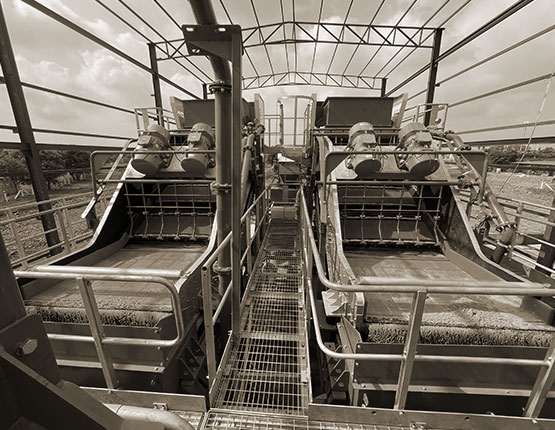
FEEDING
Raw Material: Fed into into the system through a Feed Hopper onto a wet sizing screen.
PRE-SCREENING:
Oversize (+3mm/Trash): Removed and dewatered for stockpiling.
Undersize (-3mm): Collected in a sump and pumped to the next stage.
PRECISION SIZING OF PRODUCT:
Sand Slurry: Pumped to a sizing screen for separation at 600 microns.
Oversize: Stockpiled after moisture reduction.
Undersize (-600 microns): Sent for further processing.

CLAY REMOVAL AND FINAL SIZING:
Hydrocyclone: Clay and other organic particles removed from the product and final product size of 600-106 micron is extracted.
Dewatering: Slurry discharged to a dewatering screen for low moisture content.
FINAL PRODUCT READY:
Stockpiling: AFS 50-55 grade foundry sand ready and stockpiled.
WATER RECYCLING:
Wastewater: Overflow containing ultrafines, clays, organics etc is gravity fed to the Water Recycling System (WRS) for settling.
Polymer mixed and stirred by agitators in the dosing tank and automatically mixed into the WRS.
SLUDGE MANAGEMENT:
Wastewater Discharge: Discharged to the sludge pond by an in-built slurry pump.
Solidification: Clear water separates and oozes out from the slurry in the settlement bay for reuse, and clay solidifies for collection and potential use for making cold-bonded bricks.
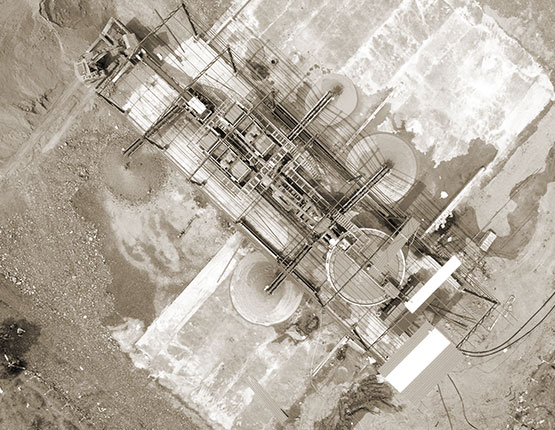
The commissioning of the Micrograder BT100 Silica Sand Processing Plant in Bharuch, Gujarat, marks a significant milestone in sustainable foundry sand production. The integration of state-of-the-art technology with a focus on environmental sustainability and operational efficiency makes the Micrograder BT100 a model for future installations.By producing high-quality foundry-grade sand with minimal environmental impact, the plant not only meets the current demands of the foundry industry but also sets a new standard for sustainable industrial operations.